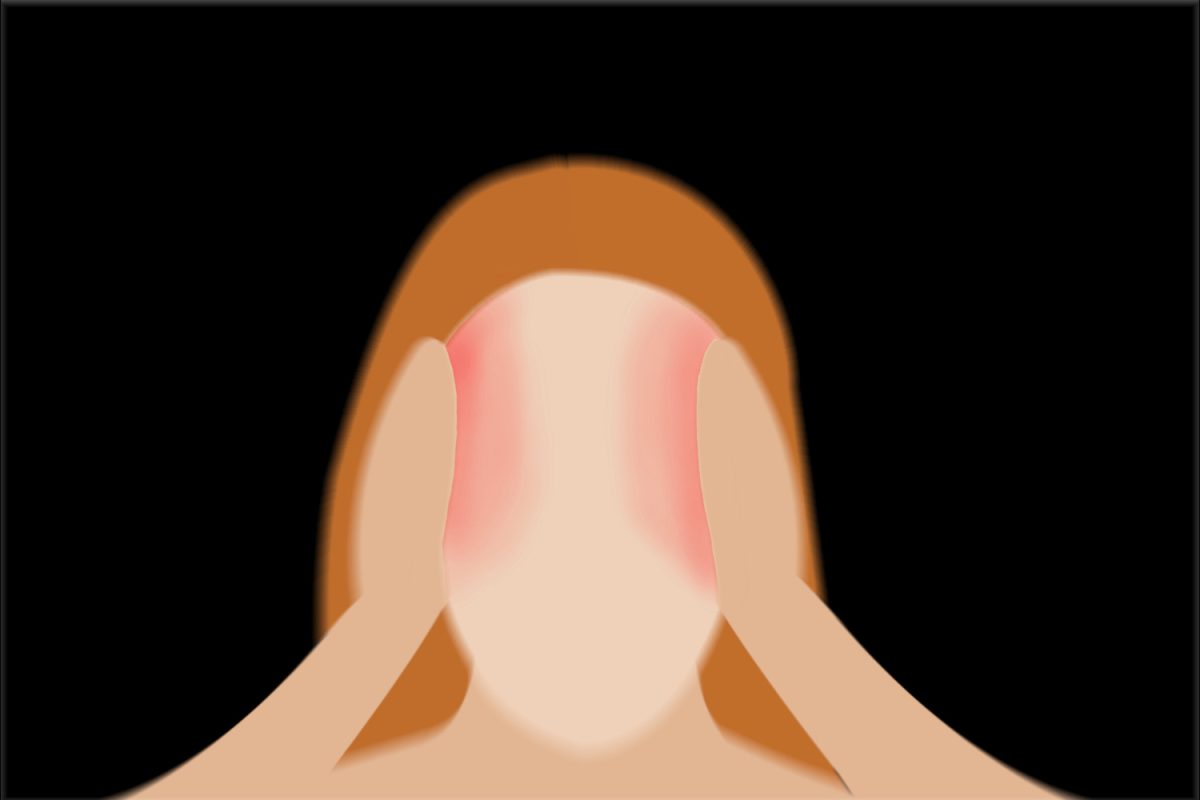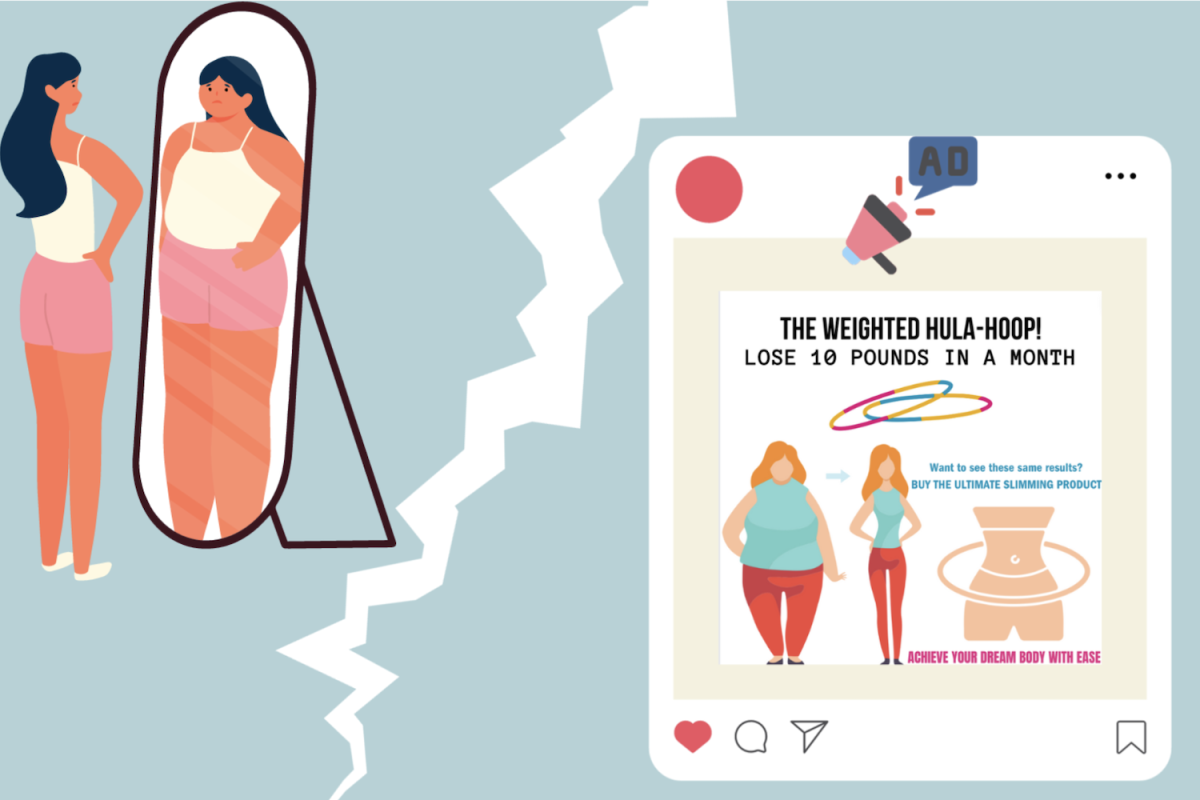Scrolling through videos from my favorite creators after school, a seemingly promising advertisement for a weighted hula-hoop appeared on my screen. I was bombarded with promises of losing 10 pounds or more in a month if I used the product daily. The image in the advertisement that enticed me to buy this overpriced product replayed in my head over the 3-day shipping period. A beautiful woman in her mid-20s, photographed with her tiny waist, toned abs and flat stomach. I pressed the purchase button, anticipating the item’s arrival: the suspiciously simple solution to achieving the perfect figure I envied.
After weeks of consistent use, I gazed into the mirror, resentful that I had not lost the promised 10 pounds. I felt both betrayed and ashamed that the hula-hoop did not work for me but seemed to give everyone else the intended results. I didn’t know what was wrong with me. But, my experience is one among many. Weight loss advertisements on social media damage young women’s body image, and promote unhealthy solutions that do not give the consumer the desired results.
According to research conducted by Emotion Matters, an alarming 88% of women compare themselves to images they see in the media. Gazing upon models and fashion influencers for hours makes women feel they must amount to the unrealistic beauty standards they see online.
As a young girl growing up in the age of social media, I can speak from experience when I say that many of us yearn to be as flawless as the images of people we see online. A study from the National Citizens Service reported at least 25% of adolescents emphasize their appearance as their priority, and 50% of young women feel online dieting and weight loss advertisements take advantage of this insecurity.
Consumers are offered a vast variety of alleged miracle solutions, from slimming teas to dietary supplements to juice cleanses. When these products do not give young buyers their ideal results, it causes a further mental health decline.
Not only are online dieting advertisements damaging mental health, but they also damage physical health. Professor Stephen Powis, NHS medical director, discovered in his study for the BBC that utilizing supplements or any medication which affects our body without the advice of a medical professional poses a considerable risk to our bodily functions. Dieting products advertised as healthy are particularly harmful because the various teas and dietary supplements promoted on social media often do not have appropriate intake guidelines and can be misused easily.
The usage of supplements and weight loss products endorsed by the media is a significant cause of the continued obsession young girls face with their bodies and, in many situations, leaves the body lacking essential nutrients that supplements cannot replace. In some cases, supplements can give the body sustenance, however, according to accredited dietitians from the Better Health Channel, supplements can not take the place of food and can be detrimental when misused.
Our body needs a balanced nutritional intake in order to perform a range of complex processes that allow us to function. When vitamins are consumed from foods, they have many other nutritional companions to optimise their effectiveness while supplements only provide the body with one singular vitamin in a large quantity. Substituting food using vitamin supplements doesn’t replace all of the companions the body uses in nutrition and therefore, is only effective to an extent.
Weight loss advertisements target not only pre-existing insecurities that young women face with their bodies but also challenge women’s confidence when they do not see the results that influencers and adverts guarantee.
Occasionally, weight loss products pushed on social media can give consumers the intended results. However, bodies of all kinds are genetically different, and a product that is effective for one person can be just as harmful to someone else. It isn’t worth taking that chance with something as vital as your mental and physical health.
Before clicking the purchase button on those tempting weight-loss products, I urge you to consider what is best for your mental and physical health. Trust me, they are no miracle.











